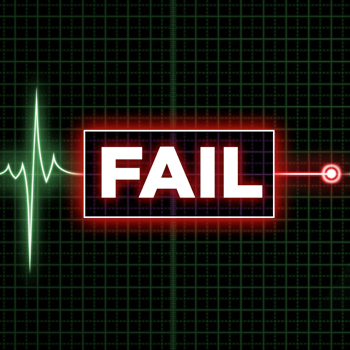
Congress should move quickly to bring all the companies that make medical diagnostic tests under FDA oversight. Recent findings show the test products are rife with error and fraud and may be causing great patient harm.
In a report released in November, the FDA said its review of 20 laboratory-developed tests (LDTs) showed the following problems:
- Unacceptable levels of false-positives leading to unnecessary treatment
- Unacceptable levels of false-negatives leading to lack of needed treatment
- Lack of any scientific evidence that the LDTs work
- Marketing based on false claims
FDA Study Questions 20 Diagnostic Products
The agency said its study looked at medical journal articles, news reports and FDA warning letters about the following products:
- Lyme disease antigen and culture tests
- OvaCheck, for detection of ovarian cancer
- OvaSure, to detect risk for ovarian cancer
- PreOvar KRAS-Variant Test, to detect risk for ovarian cancer
- Whooping Cough (Pertussis) Diagnostic Test
- Oncotype DX HER2 RT-PCR, to guide treatment of breast cancer
- SurePath Collection Medium, to detect HPV with high risk of cervical cancer
- Noninvasive prenatal cell-free DNA testing (NIPT, or cfDNA), to identify fetal abnormalities
- FM/a Test, to diagnose fibromyalgia
- KIF6 “Statincheck” Genotyping Assay, to predict risk of heart disease and response to statin treatment
- Target Now, to detect 20 biomarkers for a range of cancer types
- Prolaris, to detect risk of occurrence and death in men with prostate cancer
- XMRV-Chronic Fatigue Syndrome (CFS) Test, to detect mouse virus linked to CFS (since disproved)
- CARE Clinics BioMarkers, to detect heavy metal as a purported cause of autism
- Various heavy metal challenge tests, to detect a number of conditions
- Omapro Companion Diagnostic, to choose leukemia patients for a clinical trial
- Duke University Chemotherapy Assessment, to match patients with best cancer treatment
- Vitamin D Test non-invasive test for Vitamin D levels
- OncoVue, to predict inherited blood cancer risk
- BrafV600E Mutation Tests, for patients with metastatic melanoma
Wrong, Bogus Tests Can Have Life-and-Death Consequences
The misdiagnoses of serious conditions may have serious consequences. False-positives can lead to unnecessary or wrong treatment; false-negatives can result in failure to get or a delay in needed treatment. Fake tests scam the public for profit, and false claims are simply fraud. One product that claimed to detect fetal abnormalities by examining the mother’s DNA was prone to high levels of false-positives, which may have led to unnecessary abortions, the FDA said.
Lack of Oversight Stems from Outdated Law
The reason these tests aren’t regulated is because the law has not caught up with technology. Products produced by a single laboratory were excluded from FDA oversight in the mid-1970s. There weren’t very many of them. Single-product laboratories existed mostly in hospitals where they formulated a single drug for a select group of patients. Since then, their numbers have exploded. For one thing, advances in genetic engineering have fueled a huge growth in genetics-based testing.
Today, hundreds of diagnostic testing products are produced in stand-alone labs and are offered for sale to doctors or to the public at large. Unlike commercial labs that produce many products, the companies offering these tests are not required to:
- Gather and report evidence of adverse events
- Provide proof that the test does what it claims to do
- Provide proof that the product does not represent an unacceptable risk to patients
- Use only truthful statements in marketing
This is an oversight with an easy solution.
The FDA has made a proposal to Congress that laboratory diagnostic tests (LDTs) be brought into the federal fold and regulated just like at commercial, multi-product laboratories. This action will help separate the poor-to-harmful products from the safe, effective ones. The LDT industry itself should welcome this oversight. Congress should immediately approve the FDA’s plan and put a rush on its implementation.
